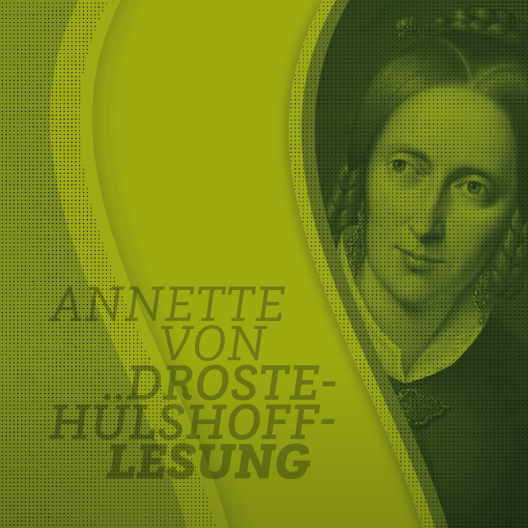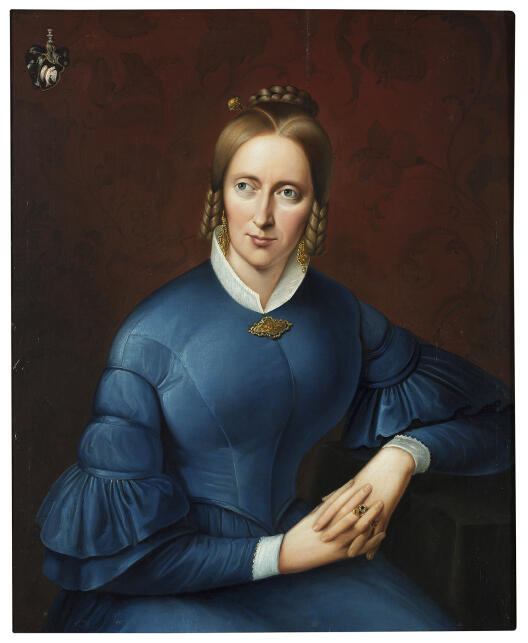Annette von Droste-Hülshoff reading

Every year, since 2024, international writers who explore the relationship between religion and politics in an artistically challenging way have been invited to the Annette von Droste-Hülshoff reading at the Cluster of Excellence ‘Religion and Politics’.
It is not only academic research that is interested in the relationship between religion and politics, but also literature, which can express questions and nuances, dilemmas and conflicts, in a way that differs from the academic study of religion and politics. For this reason, the Cluster of Excellence ‘Religion and Politics’ at the University of Münster is organizing the Annette von Droste-Hülshoff reading.
About Annette von Droste-Hülshoff

Portrait of Annette von Droste-Hülshoff© Johann Joseph Sprick, 1838, Annette von Droste-zu-Huelshoff-Stiftung Foto: Hanna-Neander The Münsterland author Annette von Droste-Hülshoff (1797-1848), who gives her name to the reading series, once said that she wanted to be read in a hundred years’ time, and she is now one of the most important writers in the German language. While in the past she tended to be seen as a staid Westphalian noblewoman, critics today now recognize her pioneering modernity. Her critical view of religion and society, as well as her finely drawn depictions of nature and landscapes, which reflect the relationship between human and a natural world under threat, make her work still relevant today. Published in 1842, the novella 'The Jew’s Beech' ("Die Judenbuche"), which depicts social and religious affiliation and marginalization, has long been one of the most widely read works in the German language, but has taken on a new urgency in today’s world, one riven by crises and social tensions. Written in a reflective and precise style, Droste-Hülshoff’s complex texts refuse to offer simple answers.


